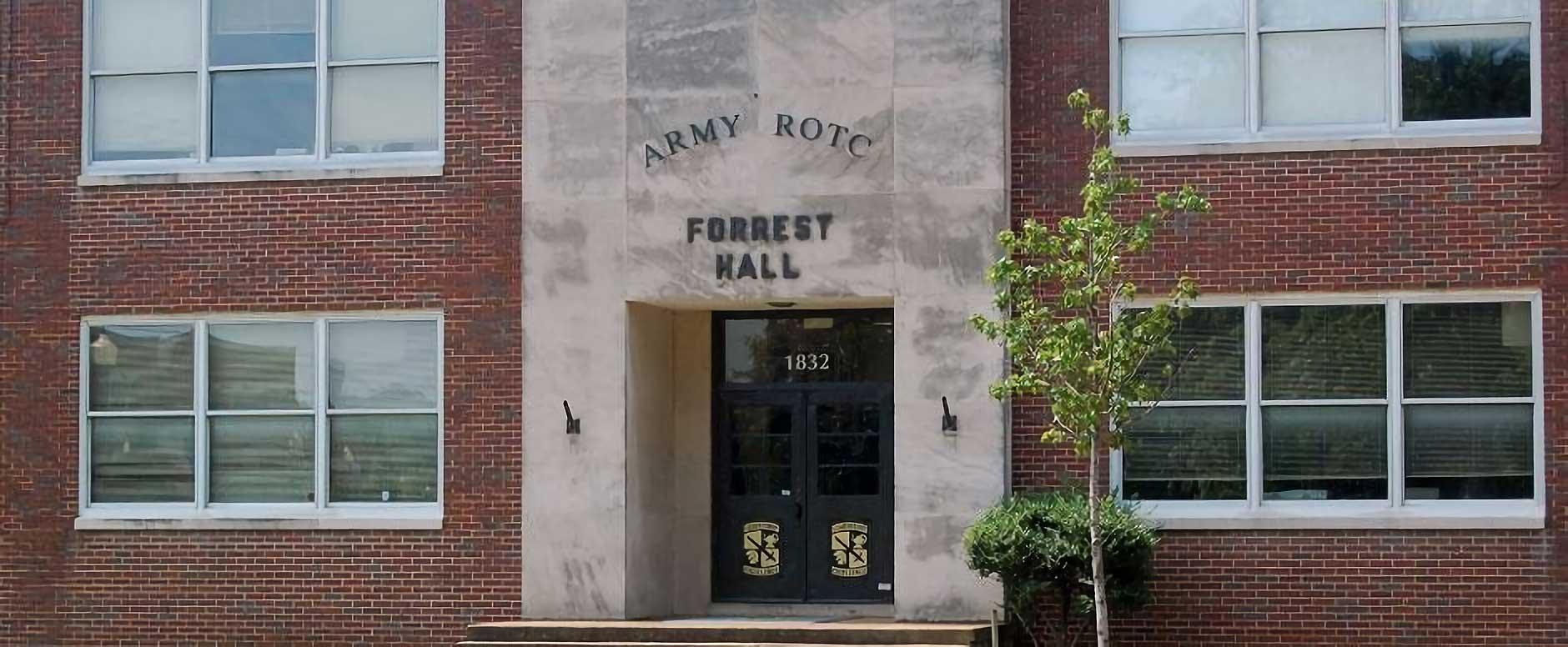Forrest Hall
Forrest Hall
MTSU announced in June 2015 that it would engage the community whether to rename Forrest Hall, which was erected in 1954 to house the university’s Army ROTC Program and is named after Confederate Gen. Nathan Bedford Forrest. The announcement came following a mass shooting at a historically black South Carolina church that prompted a national discussion about Confederate iconography on public property.
President Sidney A. McPhee formed a task force to recommend whether the building should be renamed; retain the name but with added historical perspective; or recommend that no action or change is warranted. The task force included faculty, alumni and student representation, as well as community members. The task force held two open public meetings and three open forums before recommending to McPhee in April 2016 to change the name.
McPhee, in a letter to Derek Frisby, chair of the task force and a global studies instructor, accepting the recommendation, said “the values and goals we share in 2016 as a comprehensive university with international reach are not best reflected by retaining a name affixed in 1958 when we were a small local college that rarely extended beyond our region.”
“It is clear that there are many wide-ranging and contradicting views about the life and legacy of Confederate Lt. Gen. Nathan Bedford Forrest,” McPhee said. “I do not feel it is my role to discern the appropriateness or relevance of his actions prior, during or after the Civil War.
“It is appropriate, however, for me to assess whether the decision made in the middle of the 20th Century to name the building for General Forrest remains in our best interest in the second decade of the 21st Century.”
McPhee then sought approval next from the Tennessee Board of Regents, MTSU’s governing board at the time, which endorsed the president’s decision in June 2016.
MTSU, in September 2016, next filed a Petition of Waiver with the Tennessee Historical Commission, which by state law needed to sign off on the name change by a two-thirds margin. The 15-7 vote in February 2018 failed to reach the two-thirds requirement and MTSU’s petition was denied.
“We felt we made a very compelling argument on why the name change was in the best interest of the university, so we are disappointed that our request failed to receive approval from two-thirds of the commission as required by law,” McPhee said.
In August 2021, McPhee wrote an opinion column for The Tennesseean reaffirming his desire to change the building’s name. “Seeing Forrest’s name on the building is painful and infuriating to many, including me,” McPhee said in the column.
Then, in September 2021, MTSU Board of Trustees, the governing board that was formed after the university was made a locally governed institution apart from TBR, voted unanimously to support efforts to gain state permission to make another attempt to rename the building.
Forrest, a Confederate officer praised for his tactical methods, has also drawn attention because of his early ties to the birth of the Ku Klux Klan.
Forrest Hall was built in 1954 to house the ROTC program, but wasn’t dedicated until 1958, when the name became official. It was chosen because of Forrest’s notoriety as a military tactical genius and his ties to the middle Tennessee region.
Debate about Forrest rose periodically at MTSU through the civil rights era and beyond, with the University removing a 600-pound bronze medallion of Forrest from the Keathley University Center in 1989. Previous opposition to the name of Forrest Hall didn’t reach its height until 2006-07, when a number of students petitioned to have the name removed because of Forrest’s ties to the Ku Klux Klan.
